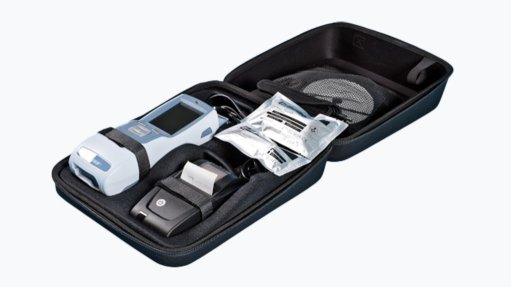Equitable access requires multifaceted approach
Access to clean water is a fundamental human necessity, yet it remains a significant challenge in Africa, with more than 300-million Africans lacking access to safe drinking water, while more than 700-million lack proper sanitation, and over 800-million have limited access to basic hygiene services, according to statistics from 2020.
Taking the dire situation into account, market research company Frost & Sullivan Africa consultant Yaa Ngonyama stresses that rapid urbanisation and the compounding effects of climate change are therefore placing additional strain on an already over-burdened water infrastructure system.
To address these critical issues, she suggests that Africa embrace technology-driven solutions to enhance water accessibility and management.
She explains that some of the main challenges hindering accessibility to clean water in Africa are a lack of infrastructure investment, poor maintenance of bulk water supply infrastructure, rapid urbanisation, a decline in water quality, and climate change.
However, the advent of disruptive technologies, such as artificial intelligence (AI), holds the potential to bridge these disparities and usher in a more equitable future for all Africans.
“AI has the capacity to enact transformational change, particularly in the realm of real-time water quality monitoring. AI-powered sensors can swiftly identify hazardous pollutants, thus combatting waterborne illnesses that afflict communities,” Ngonyama says.
She adds that AI algorithms can also play a pivotal role in optimising water distribution networks, curbing leaks, minimising wastage and ensuring that water reaches areas where it is most needed. This multifaceted application holds tremendous promise, she avers.
Additionally, on a continent where agricultural industries grapple with water-related challenges, she notes that AI is poised to revolutionise water conservation and irrigation practices.
“By harnessing AI-driven insights, African nations can elevate their agricultural output sustainably, thereby fostering economic growth and food security. “Some innovative projects, such as Google’s ‘AI for Social Good’ programme, have already shown promise in addressing healthcare and agriculture challenges in African communities,” she explains.
Some of the AI projects funded by Google include the development of a smartphone application for disease diagnosis in Uganda, and a model to monitor grassland quality and estimate local market prices in Kenya.
Another solution Ngonyama points to is that of fostering improved public- private collaborations through increased investments in water infrastructure.
Over the past decade, the water infrastructure situation in South Africa and Africa has been characterised by both progress and challenges, she says, noting that while there have been some investments and policy changes to improve water infrastructure, “a significant investment gap still needs to be addressed to ensure access to clean water and sanitation for all”.
Currently, the continent needs investments in water and sanitation infrastructure amounting to an estimated $50-billion a year to achieve water security and sustainable sanitation by 2030. However, the current foreign direct investment inflow for water and sanitation ranges between $10-billion and $19- billion a year.
Investing in the water and sanitation sector is also crucial to achieving the United Nations’ Sustainable Development Goal 6, pertaining to universal access to clean water, sanitation and hygiene.
However, not all is lost, as some recent success stories include the South African government piloting an innovative project model in collaboration with various private-sector entities.
This pioneering approach, Ngonyama explains, sees government assuming a regulatory role, while private enterprises undertake on-ground implementation in partnership with governmental institutions.
Some of the world’s biggest mining conglomerates have embarked on this venture with the South African government, dedicating R27-billion to a water project that aims to provide essential drinking water to the mines’ operations and to individuals residing in the surrounding regions.
Key contributors include miners Glencore and Anglo American Platinum, who are “integral components” of the Lebalelo Water Users Association.
The primary objective for these entities is to secure 50% of the project’s financing by year-end, with the remaining funds expected to be raised through collaboration between municipalities and government.
As an unprecedented venture in South Africa, Ngonyama says this project stands out as “one of the most substantial water infrastructure undertakings not directed by the State”.
The scope encompasses establishing an extensive network of pipelines spanning 400 km, facilitating the daily distribution of 250-million litres of water.
“This invaluable resource will reach communities such as Polokwane and Mookgophong, encompassing both urban and semi-urban areas.”
Overall, Ngonyama states that addressing Africa’s water and sanitation challenges “requires a multifaceted approach that combines technology-driven solutions with increased public-private collaborations and investments in infrastructure”.
“These efforts will empower Africa to make substantial progress toward achieving equitable access to clean drinking water, resulting in transformative improvements for individuals and communities,” she concludes.
Article Enquiry
Email Article
Save Article
Feedback
To advertise email advertising@creamermedia.co.za or click here
Announcements
What's On
Subscribe to improve your user experience...
Option 1 (equivalent of R125 a month):
Receive a weekly copy of Creamer Media's Engineering News & Mining Weekly magazine
(print copy for those in South Africa and e-magazine for those outside of South Africa)
Receive daily email newsletters
Access to full search results
Access archive of magazine back copies
Access to Projects in Progress
Access to ONE Research Report of your choice in PDF format
Option 2 (equivalent of R375 a month):
All benefits from Option 1
PLUS
Access to Creamer Media's Research Channel Africa for ALL Research Reports, in PDF format, on various industrial and mining sectors
including Electricity; Water; Energy Transition; Hydrogen; Roads, Rail and Ports; Coal; Gold; Platinum; Battery Metals; etc.
Already a subscriber?
Forgotten your password?
Receive weekly copy of Creamer Media's Engineering News & Mining Weekly magazine (print copy for those in South Africa and e-magazine for those outside of South Africa)
➕
Recieve daily email newsletters
➕
Access to full search results
➕
Access archive of magazine back copies
➕
Access to Projects in Progress
➕
Access to ONE Research Report of your choice in PDF format
RESEARCH CHANNEL AFRICA
R4500 (equivalent of R375 a month)
SUBSCRIBEAll benefits from Option 1
➕
Access to Creamer Media's Research Channel Africa for ALL Research Reports on various industrial and mining sectors, in PDF format, including on:
Electricity
➕
Water
➕
Energy Transition
➕
Hydrogen
➕
Roads, Rail and Ports
➕
Coal
➕
Gold
➕
Platinum
➕
Battery Metals
➕
etc.
Receive all benefits from Option 1 or Option 2 delivered to numerous people at your company
➕
Multiple User names and Passwords for simultaneous log-ins
➕
Intranet integration access to all in your organisation
















